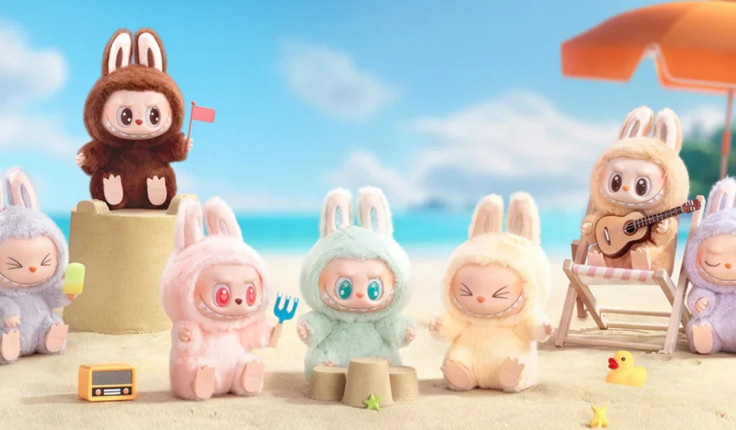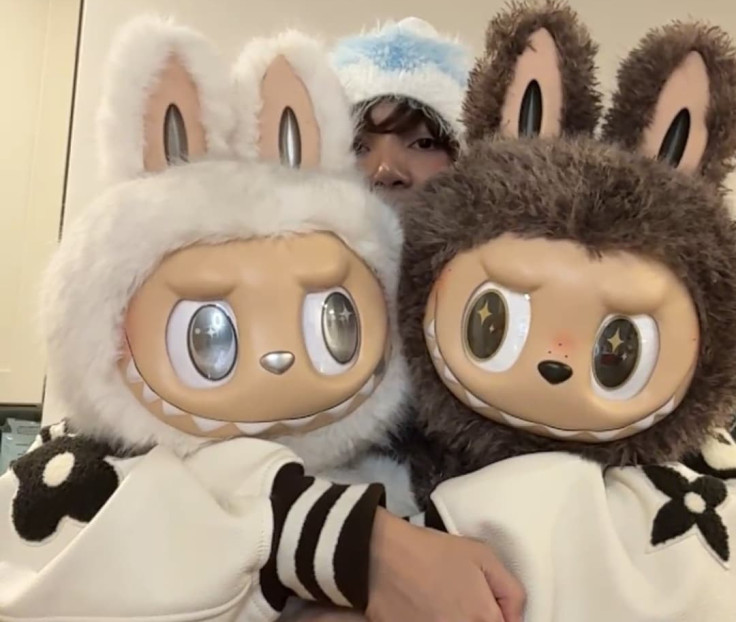Expert Says Labubus are a 'Psychological Response' to Burnout and Disconnection—What Does That Mean?
TikTok & Instagram are flooded with Labubu-themed content—unboxings, trades, and even skits—building a subculture that offers instant belonging.

While Labubu doll keyrings may seem like innocent fun, psychologists are increasingly suggesting that the global craze for these tiny, fluffy creatures reflects a wider emotional void, one rooted in burnout, anxiety, and social disconnection.
What Is a Labubu and Why Are People Obsessed?
Labubus are quirky, gremlin-like toys designed by Hong Kong artist Kasing Lung, sold predominantly through Pop Mart, a Chinese toy company known for its blind-box collectables. Since their launch in 2019, Labubu figures have surged in popularity worldwide, particularly among millennials and Gen Z.
Sold in sealed boxes, each Labubu contains a different surprise character, making the unboxing process a core part of the appeal. With each purchase, there's a dopamine rush—a blend of anticipation and delight that keeps collectors coming back.
Burnout, Uncertainty, and the Comfort of Trinkets
But what's fuelling this sudden fascination with small figurines? Chartered clinical psychologist Tracy King told Tyla that the Labubu boom isn't just about nostalgia or aesthetics:
'Trinket culture is a response to burnout and disconnection. It's not a shallow trend. It's a psychological response to the demands of modern life.'
As many young adults face economic uncertainty, rising living costs, climate anxiety, and information overload, Labubus offer a manageable source of joy—small enough to carry, collect, and display, yet powerful enough to lift a mood or provide comfort.
Tiny Symbols of Control and Stability

According to King, Labubu dolls serve as micro-luxuries—inexpensive indulgences that offer emotional satisfaction in a world that feels increasingly unstable:
'As long as society remains fragmented and demanding, people will continue to seek soft, small, symbolic ways to feel better.'
'These soft, playful objects evoke feelings of safety, care, and nostalgia, things that might've been missing or cut short in early life.'
'This is inner child work in action.'
This idea isn't new. During the pandemic, adults turned to puzzles, baking, and colouring books for similar reasons. What distinguishes the Labubu craze is how social media has amplified its spread and ritualised its culture.
The Dopamine Economy: How Blind Boxes Keep Us Hooked
Licensed therapist Lindsay Fleming told POPSUGAR that the psychological reward comes not just from the toy itself, but from the act of acquiring it.
'There's the comfort, then there's this piece of surprise and anticipation, and then there's a piece of, this also can be an investment.'
This unpredictability translates to repeated purchases, and in some cases, stockpiling. In April 2025, Pop Mart stores in London were forced to suspend Labubu sales after fights reportedly broke out over limited-edition models.
Community in a Lonely World
For many fans, collecting Labubus is also a gateway to connection. Social platforms like TikTok and Instagram are flooded with Labubu-themed content—unboxings, trades, and even skits—building a subculture that offers instant belonging.
Fleming explains that this shared enthusiasm helps ease isolation: 'I think it's connecting people. If you see someone on the street [with] a Labubu, and you have a Labubu on your bag, and you make eye contact, you're like, 'I get you, girl. I know you.'
The sense of community is real, albeit digital. For collectors dealing with loneliness or social anxiety, the Labubu fandom becomes a safe haven.
From Comfort to Compulsion: When Collecting Goes Too Far

Yet not all experts are thrilled. Dr Emma Palmer-Cooper, a psychologist interviewed by Tyla, warned that this kind of collecting can sometimes spiral into compulsive behaviour, mainly when fuelled by social comparison or feelings of inadequacy.
She said: 'When a hobby begins to dominate someone's life, either taking up significant space, becoming financially burdensome, or fostering unhealthy competition, it may negatively affect wellbeing.'
'Social dynamics around collecting can become toxic if they shift from shared joy to comparison, competition, or status.'
The popularity of resale platforms like eBay, where rare Labubus fetch hundreds of pounds, has also intensified the pressure to acquire and flaunt the latest figures, pushing some fans into financial strain.
Not Just Labubus: Trinket Culture as a Global Phenomenon
Labubu may be the face of the moment, but it's part of a much larger trend. Experts say we are living in a time defined by trinket culture—an era in which small, emotionally resonant items play a disproportionately large role in people's emotional well-being.
According to data from Axios, Labubu's live sales grew by 300% month-on-month between March and June 2025. Pop Mart's figures indicate that the brand is expanding into new markets at a record pace, with sell-outs in the UK now becoming commonplace.
What Does It All Mean?
Tracy King believes this movement reflects a deeper societal undercurrent:
'On the surface, they're fun and whimsical. But psychologically, they're deeply symbolic: these objects offer small, accessible moments of comfort, control, and identity in an unpredictable world.'
At their best, collectables like Labubu can provide comfort, connection, and even healing. But they also highlight larger issues about mental health, economic insecurity, and the shrinking spaces in which people feel truly safe.
Whether the Labubu craze fades or evolves into something more lasting, one thing is sure: it's not just about cute toys. It's about how people survive and soothe modern life.
© Copyright IBTimes 2025. All rights reserved.





















